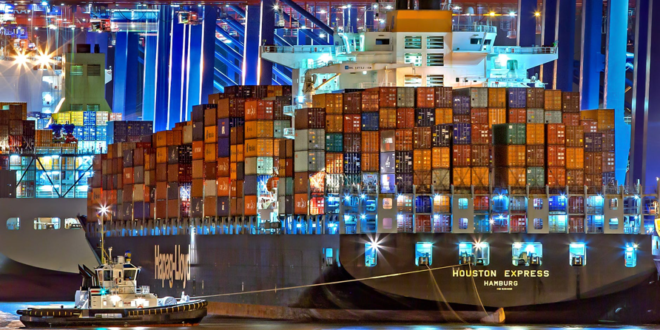Sustainability in the shipping industry has become increasingly important over the past few years, in part due to growing awareness of how shipping can impact the environment.
Now, companies are looking to new technology to help reduce shipping emissions and make shipping more eco-friendly. From electrification of fleet vehicles to smart cargo monitoring, the right technology can help businesses significantly reduce the environmental impact of moving goods.
How Shipping Can Impact the Environment
Shipping goods is almost always a carbon-intensive and energy-hungry process.
Ships transport more than 10 billion metric tons of cargo every year, helping to move everything from electronics to clothing to food. These cargo ships require a great deal of fuel – typically high-sulfur fuel oils that generate a variety of atmospheric pollutants when burned for fuel, like sulfur dioxide and nitrogen oxide in addition to carbon dioxide and carbon monoxide.
Ground shipping can also have some serious environmental impacts. Mail trucks and semi-trailer trucks can both generate large amounts of greenhouse gas emissions.
In total, shipping accounts for around 3% of all greenhouse gas emissions – more than the aviation sector’s share of emissions. Because supply chains are on track to become more complex over the next few years, shipping may have an even greater impact on the environment.
New Technology Making Shipping More Eco-Friendly
Fortunately, new technology is helping to make cargo ships much more efficient. Certain technology may even be able to completely eliminate the emissions these ships produce without significant disruptions to the global supply chain.
1. Vehicle Electrification
The electrification of cars, trucks, and utility vehicles is accelerating. Major auto manufacturers are beginning to invest heavily in new electric vehicles (EVs), including consumer and commercial vehicles.
Now, experts predict that electric semi-trailer trucks are almost ready to arrive on the market. In the near future, companies will have access to trucks that produce little to no emissions and can rely entirely on renewable power. While experts predict that the logistics industry may be slow to adopt these electric semi-trailer trucks, even a handful of these trucks may help to significantly reduce industry emissions.
2. New Vehicle Management Systems
The amount of fuel a truck or cargo ship will need can vary massively depending on how that vehicle is used. Certain driver or pilot behaviors, like slow-steaming for cargo ships, can potentially make ships and trucks much more fuel-efficient.
Novel vehicle management systems can help managers track driver behavior, allowing them to identify and prevent fuel-inefficient habits like idling, harsh driving, harsh braking, and speeding.
In practice, these systems are one of the best ways to reduce fleet fuel use. For shipping companies, they can help significantly reduce both the fuel consumption and carbon footprint of shipping vehicles, like semi-trailer trucks or mail trucks used for last-mile delivery.
3. Low-Carbon Fuels
Electrification isn’t an option for every shipper – and for cargo ships, electrification may remain impractical well into the future. Low-carbon fuels can help companies reduce their environmental impact when shifting away from fossil fuels altogether isn’t a possibility.
Popular alternatives to high-sulfur fuel oils include liquified natural gas (LNG), liquified petroleum gas (LPG), methanol, and various kinds of biofuel.
These alternatives – compared to currently popular high-sulfur fuel oils like heavy fuel oil (HFO) and marine gas oil (MGO) – can provide significantly reduced emissions and a lower energy cost per ton for shipping companies.
Some alternative fuels, like green ammonia and hydrogen fuel, can almost completely eliminate the emissions a cargo ship or other vehicle will produce. These alternative fuels are more experimental than LNG, LPG, and methanol, but they may soon have a major impact on the shipping industry.
4. New Port Management Technology
Port congestion has created major challenges for the supply chain over the past few years. Cargo ships face higher-than-ever wait times at major ports around the world. In Los Angeles, port congestion has led to increased emissions in and around the port, harming local air quality. Other ports likely face similar issues.
New technology may help global logistics companies begin to ease port congestion. Smart ports, for example, take advantage of a variety of new technologies, including automation, digitization, smart IoT (internet of things) devices, and big data analysis to improve port operations.
These technologies can help managers identify and fix port inefficiencies, potentially easing congestion at some of the largest ports in the world.
New Technology May Help Make Shipping More Sustainable
Shipping is often a fairly unsustainable process requiring vast amounts of high-emissions fuel. Fortunately, new technology may help make shipping much more eco-friendly.
Electric vehicles, alternative fuels, and new management systems can all help to reduce the environmental impact of moving goods.



